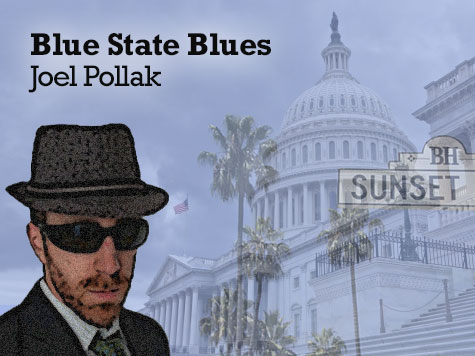Republican gubernatorial nominee Neel Kashkari is winning praise across the board for his performance in Thursday’s night’s debate against incumbent Democrat Gov. Jerry Brown. “Neel, despite looking something like Mr. Spock, proved he belonged on the same stage, was not intimidated and showed familiarity, if not mastery, of key issues,” wrote Calbuzz. Yet the truth is that Kashkari did far more than prove his own competence.
Kashkari also rattled Brown the way few others have done. Brown’s performance was solid–but also petulant. After challenging rival Meg Whitman to ten debates in 2010, Brown only agreed to one debate against Kashkari, and seemed irritated that he had to condescend to even one hour on the stage before the electorate.
Unable to fend off Kashkari’s attacks, Brown repeatedly resorted to personal insults against the well-prepared challenger. With a 16-point cushion in the polls, and the state’s voters finally feeling good about California’s future, Brown could have afforded to look magnanimous.
Certainly, if he still nourishes any presidential ambitions, Brown would have wanted to create a more statesmanlike impression.
Instead, he looked carping–more alert than the Obama who showed up at the disastrous first presidential debate in 2012, but not much more effective.
Though defeat is still a distant long shot, Brown no longer seems invincible after Thursday. And while Brown is often said to be running on his record–a turnaround in state finances, a slow economic recovery, and bipartisan cooperation on projects like water infrastructure–Kashkari made a compelling case in the debate that many of the achievements for which Brown takes credit are small, and outweighed by the state’s urgent challenges.
Indeed, given the media bias evident in the room on Thursday–where some journalists laughed along with Brown’s cheap shots–it is worth asking whether Brown is really running on a “record,” or on favorable media impressions generated by a press corps that is as liberal as any in the nation, that was tired of covering a GOP governor for seven years, and that is simply glad that Brown has turned out to be better than Gray Davis.
It is also worth asking whether Brown succeeds largely because of the weakness of his Republican opposition, which offers little resistance lately to his plans, and which is standing down on statewide issues and contests in favor of chipping away at the Democrats’ potential supermajority in legislative races.
A stronger and united opposition could give Brown more than one evening’s worth of trouble, and might even hope to win again.
It is not clear whether Kashkari is the man to lead California Republicans into that more promising future. He has rather different views than many conservatives on the issues of gay marriage and the Wall Street bailouts of 2008, which he administered (though he hews to party orthodoxy on illegal immigration).
Yet even Republicans who backed Kashkari’s rival Tim Donnelly in the primary will feel reassured with him on the November ballot.
Again, Brown is likely to prevail easily in November, and while he suffered a few stumbles in the debate, he did not commit any campaign-threatening gaffes. (Nor, given Brown’s support in the media, would he suffer for such mistakes even if he made them.)
Yet Kashkari has punctured the hot air balloon that was to have carried Brown lazily to victory. In a less one-sided political environment, Kashkari might hope for even more.

COMMENTS
Please let us know if you're having issues with commenting.